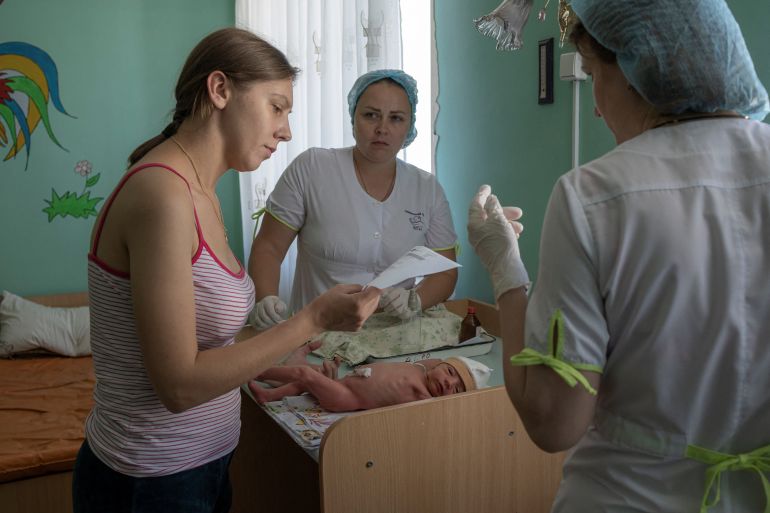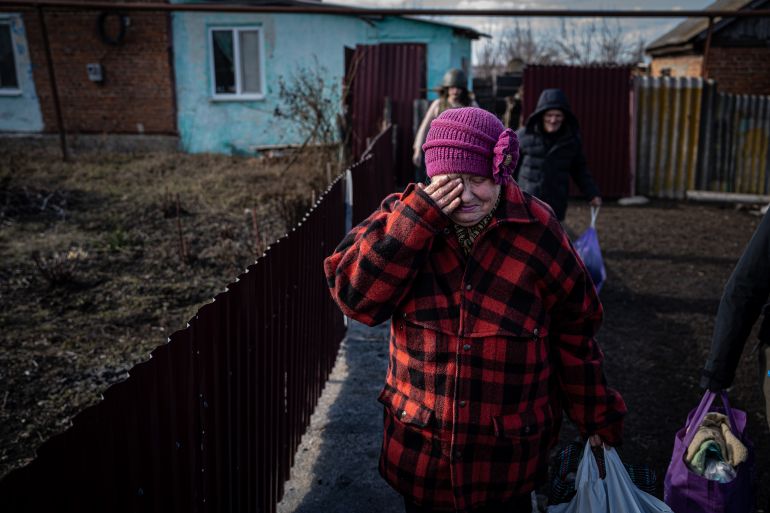China’s No 2 official says Beijing can be ‘anchor for world peace’ amid tensions with the United States.
Taipei, Taiwan – Asia must avoid “chaos and conflicts” or the region’s future will be lost, Chinese Premier Li Qiang has said.
Speaking to an international audience of political and business leaders on Thursday, Li said China can be an “anchor for world peace” and stability, and will continue undertaking reforms and opening up.
“In this uncertain world, the certainty China offers is an anchor for world peace and development,” Li told the annual Boao Forum for Asia on China’s Hainan Island. “This is the case in the past and will remain so in the future.”
Dozens of business leaders, including Apple Chief Executive Tim Cook, HSBC Chief Executive Noel Quinn, and Blackstone founder Stephen Schwarzman, are attending the forum, which comes as China faces heated competition with the United States as well as the task of reviving the world’s second-largest economy after nearly three years of isolation under a tough “zero-COVID” policy.
Political leaders attending the event include Spanish Prime Minister Pedro Sánchez, who is due to become president of the European Union in July, and Malaysian Prime Minister Anwar Ibrahim.
IMF Managing Director Kristalina Georgieva also spoke on Thursday morning about the need for cooperation and solidarity to overcome problems like trade fragmentation and find solutions to “reinvigorate international trade in an equitable way and diversify supply chains”.
Despite weak economic data in the first two months of 2023, Li said China is on the path to recovery after the end of “zero COVID,” which was abruptly scrapped in December following rare mass protests.
China will continue to “seek progress while maintaining stability, consolidate and expand the momentum of economic recovery and promote the continuous overall improvement of China’s economic performance,” Li said.
China’s economy grew by just 3 percent in 2022, the weakest performance in decades except for 2020, when COVID-19 upended business, travel and trade.
Li, a close confidant of Chinese President Xi Jinping who was named the No 2 official earlier this month, said China would remain committed to “reform and opening up” regardless of the “evolving” global situation.
He also said China opposed “trade protectionism” and “decoupling” – thinly veiled references to the US’s efforts to restrict China’s development in key areas such as technology through the use of sanctions and other measures.
Despite Li’s attempts to assure investors, China’s economy faces a raft of challenges, including slowing global growth, a low birth rate, a real estate crisis, and growing pushback from the US and its allies.
Those obstacles will make it a challenge to restore foreign investor confidence in China, said Nick Marro, lead analyst for global trade at the Economist Intelligence Unit.
“It’s clear that the top leadership really wants to convince the world that China is back, and that China is open. Li Qiang faces an uphill battle with that messaging, however, given weak recent economic indicators, declining foreign investor optimism, concerns around China’s future domestic policy direction and growing geopolitical concerns regarding China’s relationship with Russia, or its designs over Taiwan,” Marro told Al Jazeera. “The rhetoric doesn’t match the reality, at least not yet – and that’s going to keep many people anxious.”
“The focus on stability is reassuring, after several years of disruption, but I think a lot of investors are looking for more than that,” Marro added. “They’re looking for growth and opportunity, not more of the same cautious status quo.”
Chinese industrial profits fell by 22.9 percent year on year for January and February, according to government data, while the profits for foreign firms fell by 35.7 percent.
Profits for private firms and state-owned enterprises fell by 19.9 percent and 17.5 percent, respectively, over the same period.
Investment houses say China is constrained domestically by a weak property sector and exports, while consumption is recovering slower than hoped for after years of pandemic-related uncertainty.
“We don’t have good data to show for a country that has opened up so massively and this is a worry I’m sure for China,” Alicia García-Herrero, the chief economist for Asia Pacific at Natixis, told Al Jazeera.
“I think the situation is unfortunately much worse than it was thought to be. The stock markets obviously show that the big recovery in December and early January is over,” García-Herrero said.












